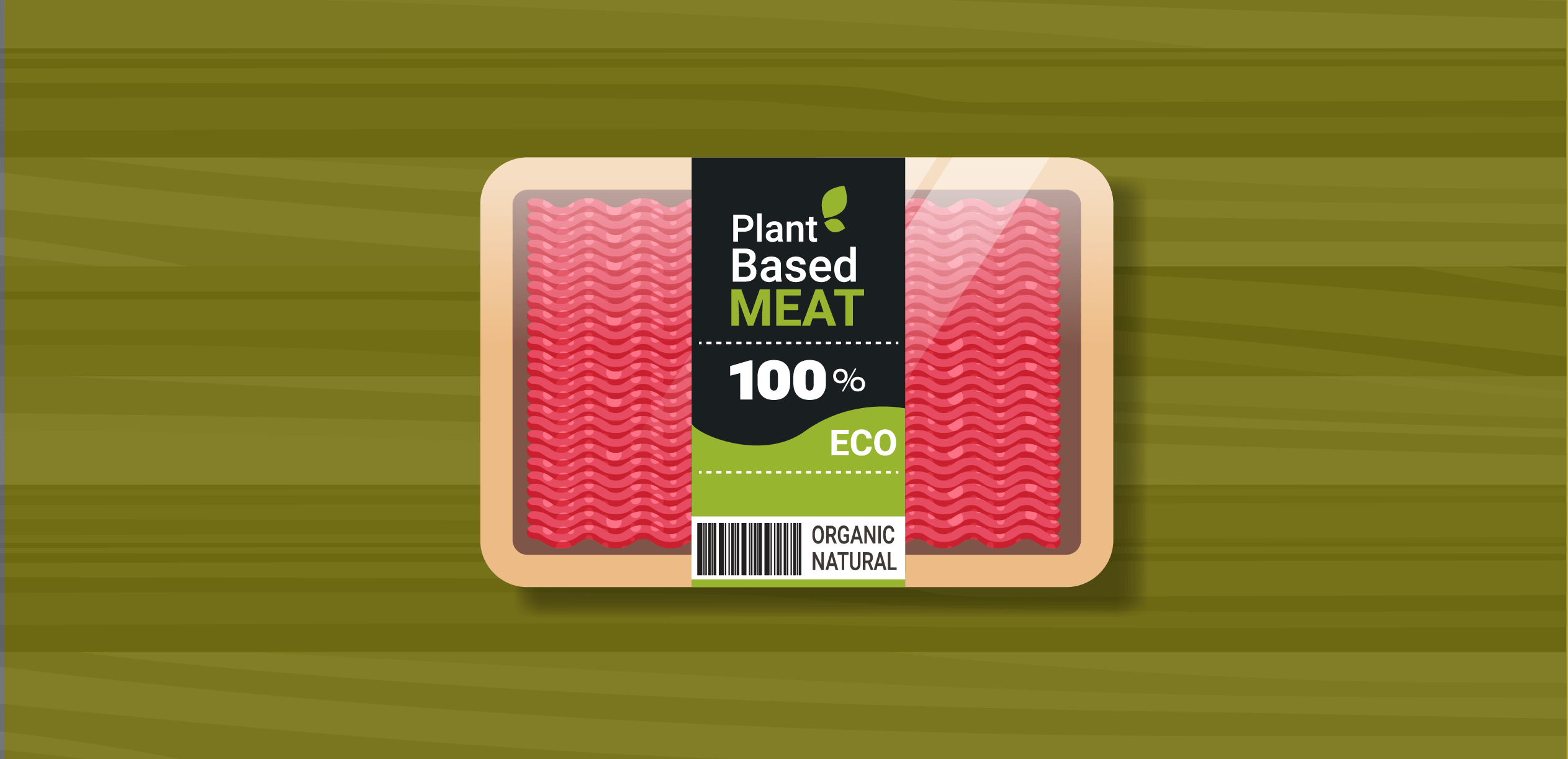In this blogpost we examine labelling regulations for plant-based meat products in foreign jurisdictions and highlight the need for plant based meat labelling regulations in India.
Introduction
Sales of plant-based meat grew by 31% between 2017 and 2019 in the United States. In striking contrast, sales of traditional meat grew by 5%.[1] The Impossible Whopper alone drove sales at Burger King by 3.5%. Traditional meat companies are paying attention. Unsurprisingly, the labelling of plant-based meat products is a source of tension. The traditionalists argue that calling plant-based products ‘meat’ or other meat-related terms is misleading to customers. They say that customers expect to eat animal meat when they buy such products. While India has not yet witnessed controversy around plant-based meats, the debate around the nomenclature of plant-based dairy alternatives has already arrived on our shores. In this blogpost, we examine the state of regulations in other jurisdictions and argue that Indian regulators must recognise that ambiguity in labelling standards would increase compliance costs, reduce efficiency and stymie the growth of the alternative protein sector that promises to provide food security without the environmental cost that burdens the traditional meat industries.
Labelling regulations for plant-based meat products
The European Union
In the European Union, the law on labelling of plant-based meats is influenced by a 2017 ruling of the European Court of Justice (ECJ). The ECJ held that plant-based products cannot be labelled or marketed using dairy terms such as ‘milk’, ‘yoghurt’ or ‘cream’.[2] The decision reserves dairy terms for products that are milk or derived from milk, and milk is limited to the milk of animals.[3] The ECJ found that such additional labels or clarifying information would not exclude the possibility of confusion on the part of the customer and therefore cannot serve as an exception to the prohibition.[4] This decision has influenced regulators to issue similar requirements for plant-based meats. In Germany, new guidance was published in 2018 that introduced the test of ‘sensoric similarity’ to label plant-based meats.[5] ‘Sensoric similarity’ means similarity to animal meats in appearance, taste, texture and smell. Such similarity would allow producers greater flexibility in the labelling of such products. Consequently, it would be uncommon for plant-based products to have meat labels such as ‘filet’ or ‘sausage’. However, references to methods of preparation such as schnitzel or terms like meatball can be used in the labelling depending on the similarity to the corresponding meat product that is referenced. This graded approach to labelling regulation, where only a limited number of products that bear a high degree of similarity to meat would be allowed to be marketed as such, is not legally binding in Germany but is an indicator of the direction in which regulation in EU countries is heading. However, the German guidance is subject to evolve based on more discussions on the issue.[6]Similarly, France has prohibited the marketing of products of which a significant part is vegetable-based with meat or meat-based terms. It justified this prohibition on the basis of the 2017 ECJ ruling. However, the ECJ ruling and the underlying regulation was limited to the labelling of dairy substitutes and was not about meat products.[7] In May 2019, the European Parliament had introduced an amendment (Amendment no. 171) to ban the use of dairy terms (like yoghurt and milk) for plant-based products, however, this amendment was dropped in May 2021.[8]
In 2019, the Committee on Agriculture and Rural Development had proposed an amendment seeking to restrict the usage of terms related to meat such as “sausage, steak, escalope, burger and hamburger”. The proposal defines meat as “edible parts of an animal”. The proposal also sought to reserve names of poultry products exclusively for edible parts of animals and poultry meats only.[9] Based on the representations they received from various stakeholder groups and civil society organisations, the Members of the European Parliament voted against this proposal to ban. Therefore, currently terms like “steak”, “sausage”, and “hamburger” are not exclusive to animal meat products in the E.U.[10]
The United States
In the United States, the debate surrounding food labelling of plant-based meats is happening at the state-level and not at a federal level, resulting in an inconsistent approach across state borders. In various states, labelling is the subject of considerable lobbying by conventional meat industry groups such as the National Cattlemen’s Beef Association that placed preventing ‘false and misleading’ marketing of plant-based products high on its 2019 policy priorities. States including Texas, Missouri, Mississippi, Louisiana , Arkansas and South Dakota have passed laws prohibiting the use of ‘meat terms’ such as sausage, burger or hot dog to describe plant-based alternatives to these products. However, each law differs. In response to lawsuits challenging the constitutionality of these measures, certain states such as Mississippi, Georgia, and Oklahoma have clarified that the prohibition would not be enforced if the plant-based product label makes it sufficiently clear that the plant-based meat product does not contain animal meat while other states such as Arkansas,Louisiana have imposed stricter prohibitions. As a result, the regulatory landscape is riddled with risks of non-compliance and inefficient costs associated with complying with different regulations in each state.
Singapore
The Singapore Food Agency requires pre-packaged plant-based meat products to be labelled with qualifying terms such as “mock” or “plant-based” to indicate their true nature, so that consumers may make informed decisions when deciding whether to consume these products.
Initiatives from the Alternative Protein Sector
In the United States, a coalition of actors including plant-based meat companies and policy advocacy organizations have filed lawsuits in federal courts in Missouri, Mississippi, and Arkansas asserting that their label censorship laws are a violation of commercial speech protected under the First Amendment to the U.S. Constitution. They say consumers know exactly what to expect when purchasing a ‘veggie burger’ or a ‘vegan sausage’. Therefore, to now prohibit accurate labelling that highlights both the similarity and provides information on the plant-based ingredients would violate First Amendment (free speech) rights. These lawsuits have met with some success. The District Court for the Eastern District of Arkansas granted a preliminary injunction against the State of Arkansas, holding that the legislation likely fails on First Amendment grounds. Labels such as ‘sausage’, ‘hot dog’ or ‘burger’ were held to be neither misleading nor inaccurate so long as clarifying labels like ‘vegan’ that inform customers of the plant-based nature of the product are present. Moreover, it was held that less restrictive means than a complete prohibition could have been used to advance the state interest of protecting consumer interests. A similar lawsuit against the State of Mississippi led to the state amending its regulations allowing plant-based meat products to use meat terms on their labels so long as the plant-based nature of the product was clear. Therefore, it appears that the free speech argument has traction in the United States and these lawsuits may prevent other states from adopting a similar complete prohibition on labelling. However, the risk of incoherent regulations remains.
Studies have shown that labels that emphasise the ‘clean’ or environmentally conscious nature of these products make it more attractive to consumers, who are increasingly conscious of and uncomfortable with the growing environmental and ethical concerns that accompany their dietary preferences. However, it still remains to be seen whether labelling bans have any definitive impact on demand for alternative proteins.[11] What is clear is that regulators must work together to craft uniform, consistent regulations that do not disadvantage new entrants to the food market while protecting reasonable consumer interests.
India
In India, many startups like GoodDot, Urban Platter, Blue Tribe Foods, Vezlay and others as well as larger existing players [12] are manufacturing and selling plant-based meat and dairy products. There is no separate regulation or guidelines that govern plant-based dairy or meat products in India. However, the products are subject to omnibus labelling requirements that all food products have to comply with.[13]
Therefore, plant-based meat products should be labelled and packaged with full disclosure about the origin (i.e., plant-based), and features. The labelling should clearly signify that the product does not contain animal meat. For example, the name of the product may include qualifiers indicating the source, such as “plant-based” or “soy-meat”. Organizations can also use pictorial representations on the packaging to show that the product does not contain animal meat.
The FSSAI had established a task force on ‘vegan foods’ last year.[14] Reportedly, this task force will be responsible for drafting guidelines and provisions for vegan foods. The FSSAI has not posted any developments relating to the task force, and it is unclear yet how this task force will define ‘vegan foods’.
On 29 July 2020, the Food Safety and Standards Authority of India issued a draft notification titled the Food Safety and Standards (Food Products Standards and Food Additives) Amendment Regulations, 2020.[15] The draft notification proposes a ban on the use of ‘dairy terms’[16] or terms phonetically similar for ‘dairy analogue’[17] products. Dairy analogues have been defined broadly: plant-based almond milk, oat milk, and plant-based yogurt, cheese, and butter, may be considered dairy analogues. The FSSAI had sought comments on the draft notification and Ikigai Law along with the Good Food Institute had submitted a joint representation arguing that plant-based dairy alternatives should be excluded from the scope of the notification.[18] If introduced, the notification will have serious implications for the plant-based dairy industry; the industry may have to stop using any term related to dairy or similar to dairy in their product name. Therefore, there is regulatory uncertainty until specific standards for plant-based meat products are introduced by the FSSAI.
The following section contains our recommendations for India.
Recommendations
The FSSAI must come up with specific guidelines for plant-based meat products, and allow the existing naming conventions followed by the industry to continue:
- The FSSAI can consider the use of qualifiers (such as ‘plant-based’) in the names of products; the use of qualifiers or compound names help consumers to identify the true nature of the product.
- In doing so, the FSSAI should interact with the stakeholders while deciding upon guidelines for plant-based meat products; the task force can invite suggestions/proposals from the stakeholders for a regulatory framework for plant-based meat products.
- The FSSAI could educate and sensitize consumers to familiarize them with plant-based meat products.
This post is written by the team at Ikigai Law with inputs from the Good Food Institute India.
Reach out to us at contact@ikigailaw.com if you are launching a plant based meat product. We would love to have a chat.
[1] 2019 U.S. State of the Industry Report Plant-Based Meat, Eggs, and Dairy, The Good Food Institute, page 9, available at
[2] Verband Sozialer Wettbewerb eV v TofuTown.com GmbH, Case C-422/16,
paragraph 52, available at
http://curia.europa.eu/juris/document/document.jsf?text=&docid=191704&pageIndex=0&doclang=EN&mode=lst&dir=&occ=first&part=1&cid=114415; Also see EU court bans dairy-style names for soya and tofu, BBC News, 14 June, 2017, available at https://www.bbc.com/news/business-40274645
[3] Supra note 2, paragraph 23.
[4] Supra note 2, paragraph 24.
[5] Susanne Karow, Germany: New guidelines for designating vegan and vegetarian products with meat related terms – Will food designations like “vegetarian salami” become soon inadmissible?, Hogan Lovells, 28 March, 2019, available at https://www.hlregulation.com/2019/03/28/germany-new-guidelines-for-designating-vegan-and-vegetarian-products-with-meat-related-terms-will-food-designations-like-vegetarian-salami-become-soon-inadmissible/.
[6] Sachstandsbericht: Temporärer Fachausschuss für “vegane und vegetarische Lebensmittel”;
[7] Antony Froggatt and Laura Wellesley, Meat Analogues: Considerations for the EU, Chatham House, February 2019, page 27, available at https://www.chathamhouse.org/sites/default/files/2019-02-18MeatAnalogues3.pdf.
[8] Amendment 171 off the table, Food Navigator; https://www.foodnavigator.com/Article/2021/05/26/Europe-drops-Amendment-171-allowing-for-creamy-and-buttery-plant-based-dairy
[9] Report on the proposal for a regulation of the European Parliament and of the Council amending Regulations (EU) No 1308/2013- A8-0198/2019 available at https://www.europarl.europa.eu/doceo/document/A-8-2019-0198_EN.pdf#page=172
[10] European Parliament News: Are veggie burgers or toku steaks going to be banned? 23 October 2020 available at https://www.europarl.europa.eu/news/en/press-room/20201019BKG89682/eu-farm-policy-reform-as-approved-by-meps/7/are-veggie-burgers-or-tofu-steaks-going-to-be-banned
[11] Caroline Beret, Soy Milk vs. E.U. Law: Who’s Really Harmed by Labeling Bans?, Medium, 22 March, 2019, available at https://medium.com/@animalcharityev/soy-milk-vs-e-u-law-whos-really-harmed-by-labeling-bans-1d8cd05b595c.
[12] https://www.thehersheycompany.com/en_in/sofit.html; http://borges.in/
[13] FSSAI Display and Labelling Regulations, 2021; https://www.fssai.gov.in/upload/notifications/2020/12/5fd87c6a0f6adGazette_Notification_Labelling_Display_14_12_2020.pdf
[14]https://www.thehindu.com/news/national/karnataka/fssai-constitutes-task-force-on-vegan-food/article32631276.ece
[15] Food Safety and Standards (Food Products Standards and Food Additives) Amendment Regulations, 2020;Draft_Notification_Dairy_Analogue_30_07_2020.pdf (fssai.gov.in) (Draft Notification)
[16] “Dairy terms” means names, designations, symbols, pictorial or other devices which refer to or are suggestive, directly or indirectly, of milk or milk products, Clause 2.1.1.1(c), Food Safety and Standards (Food Products Standards and Food Additives) Regulations, 2011;https://www.fssai.gov.in/upload/uploadfiles/files/Compendium_Food_Additives_Regulations_08_09_2020-compressed.pdf
[17] The Draft Notification defines ‘dairy analogue’ as “an imitation product that is designed or structured to mimic, or offered as an alternative/replacement to, a milk or milk product or composite milk product as defined in these regulations by partial or full substitution of selected milk components with other components from non-dairy sources,or prepared by using non-dairy ingredient(s) exclusively or in combination with dairy ingredients.”
[18] Ikigai Law and Good Food Institute’s joint representation on the FSSAI Draft Dairy Analogue Notification 2020
https://www.ikigailaw.com/ikigai-law-and-good-food-institutes-joint-representation-on-the-fssai-draft-dairy-analogue-notification-2020/









